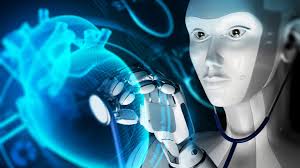AI in Cardiology
Science & Technology SciencePosted by NewAdmin on 2025-02-11 08:45:38 |
Share: Facebook | Twitter | Whatsapp | Linkedin Visits: 26

Artificial Intelligence (AI) is poised to revolutionize cardiovascular care by advancing diagnostics, treatment strategies, and overall patient management. A recent JACC State-of-the-Art Review highlights breakthroughs in AI-driven diagnostic tools, digital biomarkers, and predictive models that enhance care quality and anticipate clinical outcomes. Experts, including Dr. Rohan Khera and Dr. Eric Topol, emphasize AI’s role in disease detection, personalized risk assessment, and predictive analytics for prognosis. The future of AI in cardiology includes adaptive learning systems, AI-assisted clinical interactions, and high-quality community healthcare, addressing disparities in access to medical services. Additionally, AI is transforming cardiovascular research through mechanistic inference, drug discovery, and genomics, fostering precision medicine.AI-powered ECG analysis can identify heart failure risks, while deep learning algorithms assist in medical imaging interpretation, improving diagnostic accuracy. Moreover, AI-integrated tools facilitate remote monitoring and high-quality community care, bridging healthcare gaps and ensuring equitable access to treatment. However, challenges such as data privacy, interoperability, and regulatory compliance must be addressed for AI to reach its full potential in cardiovascular medicine Challenges such as data security, interoperability across healthcare systems, and ethical considerations remain critical to achieving widespread AI integration. However, experts foresee a future where AI-driven multimodal data will create a more efficient, precise, and accessible cardiovascular healthcare landscape
Search
Categories
Recent News
- Chennai's Development Under the Lens: Minister's Inspection Tour
- Bank Fraud Unveiled: PNB Manager's Golden Scheme Exposed
- Assam CM Vows Legal Action: Land Grab Claims Refuted
- India-Canada Relations Warm Up: A Strategic Alliance in the Making?
- Indian Cricket Prodigy Shines in U19 World Cup Semi-Final
- The Fine Line Between Acclaim and Scrutiny in Football Management
- Prostate Cancer Awareness: A Hospital's Initiative for Early Detection
- India's Data Revolution: AI Infrastructure and Job Creation
Popular News
- Navigating IPO Market Dynamics Amid Volatility and Regulatory Changes
- Massive Worldwide Microsoft Outage Disrupts Multiple Sectors
- Panjapur Bus Stand to Reshape TNSTC Routes
- తెలుగుదేశం పార్టీ - పేదరికాన్ని నిర్మూలించడంలో వాగ్దానం
- Universities Embrace Remote Learning Technologies Amidst Ongoing Pandemic